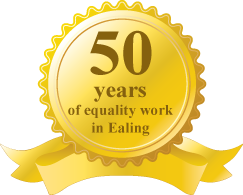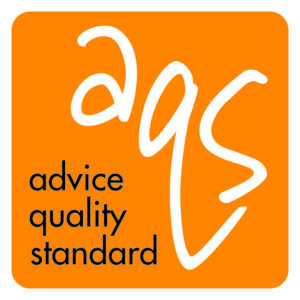07944 643899
Ring for General Enquiries
University of West London
By Appointment Only
1st Floor,
84 Uxbridge Road,
Ealing,
London,
W13 8RA
Working hours
Mon - Fri: 10:00 - 16:00
Ring for General Enquiries
By Appointment Only
1st Floor,
84 Uxbridge Road,
Ealing,
London,
W13 8RA
Mon - Fri: 10:00 - 16:00
WLEC is in many ways unique in the London Borough of Ealing in its history of both identifying and championing the need to address disadvantage and discrimination as well as contributing to the development of appropriate policies and strategies in the London Borough of Ealing.
In addition, WLEC directly provides a range of services and community-based initiatives aimed at addressing and meeting the needs of our local community.
What is now known as West London Equality Centre started as Southall International Friendship Association, formed by the local people, churches, trade unions, political groups, and others. Its slogan was ‘you’re welcome here’.
It was formed to counteract the antagonism shown to Asians and other non-white groups who came from the old empire to the Mother Country seeking work, many of them having fought in the Second World War alongside their fellow British Citizens from the UK and from all corners of the British Empire.
A rude awakening greeted many migrants to our shores here in the UK, who were drawn to the west London area because of the shortage of workers.
Migrants living in various parts of London were drawn to the industrial estates of Southall to fill the vacancies that existed, and to help rebuild Britain – recovering from the experience of the World War.
There were slogans aimed to ferment unrest between the indigenous population and the newly arrived. Some of the discrimination meted out involved instructions to estate agents not to sell houses to foreigners; slogans by political parties such as ‘If you want a n***** for a neighbour: vote Labour’ and so on.
The various parts of West London (Northolt, Greenford, Southall, Perivale, Acton, Ealing, Hanwell) merged to become the London borough of Ealing so the organisation became the Ealing International Friendship Association.
National legislation covering race relations was introduced in 1965, 1968, and 1976 covering discrimination in public places, housing and tenancy, and employment.
Lord Simon who aptly summed up the prevailing attitude that led to such legislation when he said in the House of Lords during a case involving the London Borough of Ealing that: “people were allowed to discriminate against others to their hearts content, before the legislation was passed”.
Ealing continued to play a part in ground-breaking cases regarding race relations and community cohesion before the courts, which has had a positive impact upon the way that we deal with peoples from different countries/nationalities, races groups etc.
The name of the organisation was changed to the Ealing Community Relations Council, and later to the Ealing Racial Equality Council in the late eighties.
The name was officially changed to Ealing Equality Council in August 2011, following a Resolution at the AGM.
We changed to West London Equality Centre by resolution in February 2018 to reflect that our reach goes beyond that of Ealing’s boundaries.
WLEC benefits from experienced staff and an Executive Committee which is composed of members with a track record of positive involvement in the local community, as well as bringing a range of high level skills including finance, law, and equality and human rights.
WLEC’s current plans are influenced by the impact of recent legislative changes surrounding the Equality Act and the promoting of the Human Rights Act as our Bill of Rights; and is concerned with how to re-position the WLEC both in its strategic position – in informing and influencing appropriate policy development – as well as ensuring adoption of practice which equitably meets the needs of the local population.
Further, WLEC delivers equality and human rights and other casework for the disadvantaged and vulnerable, working in association with the Community Advice Programme (CAP) and Ealing Law School, and University of West London.
This means that WLEC has come full circle as from the time of its conception: It is therefore, focused on the need to promote community cohesion and integration, now with a heavy emphasis of building this onto the Equality and Human Rights agenda.
Darra Singh, Chair of the Community Cohesion and Integration Commission, acknowledging that such a need exists said: “Ealing Council has made a commitment to dramatically improve its operations in order to make ‘a world of difference’ to the diverse community that it serves’.”
Further, Ealing’s population is composed of around 50- 55% BAMER, including an estimated 40,000 plus Polish community.
This has led to certain community tensions and according to the Reducing Hate Crime in Europe Project, Jan 2007 at page 12 – authored by the National Probation Service London: ‘race hate crime in Ealing was found to be among those boroughs showing the highest percentage rises in race hate crime in 2004-5…’
Metropolitan Police’s crime figures for the Borough of Ealing show that although there has been a decrease in the total crime level for Ealing for the 12 months (up to Jan 07) racist crime is still showing increase of 1.5% compared to the same period in 2006. The data for Faith Hate Crime is even more alarming in Ealing there has been an increase of 48.15% in 2005/2006 compared with the previous year. Breakdown of type of crime for race/religious crimes shows that it is prevalently harassment and then criminal damage for faith hate crime and violence for racial incidents as main expressions of race hate.
Perpetrators’ profile shows a peak at ages 16 to 20. (“Race hate crime, domestic violence, homophobic crime and faith hate crime Ealing Borough 2004/05 and 2005/06”, Ealing Police 17.5.2006).
Community cohesion – an action guide (LGA, 2004) points out that successful community cohesion policies must deal with the changing dynamics of race relations through building positive relationships between white and black and minority ethnic (BME) communities as well as between different BME communities. Policies must address the exclusion experienced by many BME communities.
Exclusion occurs for a variety of reasons, including poverty, racism, language barriers, lack of participation, and in the case of refugees, trauma. BMER communities remain disadvantaged according to many of the social indicators.
Taken as a whole, ethnic minority groups are more likely than the rest of the population to be unemployed, have low incomes, live in poor housing, have poor health, and be victims of crime.
Social inequalities directly undermine community cohesion. The underlying issues of poverty, deprivation and feelings of powerlessness have contributed to racial tension, resentment and support for extremist political parties.
Finally, our core objective is to build on our partnership with the local community as well as the statutory private and voluntary sectors in promoting social cohesion, promotion of social justice, good relations, equality and human rights for all.
We believe that it is in the interests of the whole community in the London Borough of Ealing (as indeed it is beyond our borough boundaries in west London) that all should be able to live and work in an environment free from all forms of discrimination, affording equality of opportunity.
We believe that this is the basis for good relations between people of different origins, racial groups, nationalities etc.
It is the basis for a united, thriving and happy society.
Our goal is to foster and advance equality and human rights for all persons individuals regardless of their age, race, colour, national origins, disability, gender, sexual orientation, religion or belief.
WLEC is in many ways unique in the London Borough of Ealing in its history of both identifying and championing the need to address disadvantage and discrimination as well as contributing to the development of appropriate policies and strategies in the London Borough of Ealing.
In addition, WLEC directly provides a range of services and community-based initiatives aimed at addressing and meeting the needs of our local community.
We work with the Community Advice Programme at the University of West London.
By Appointment
West London Equality Centre
1st Floor,
84 Uxbridge Road
Ealing
London
W13 8RA

